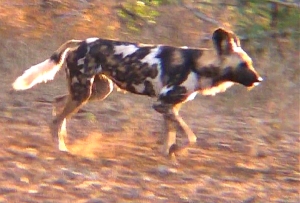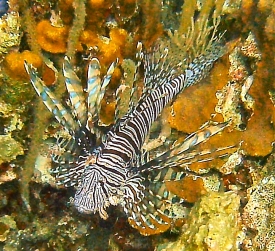 Whether retired baby-boomers or gap-year kids, it seems more and more people are getting involved in international volunteering. What is it, and how do you choose which project to get involved in? Chris and I have just started on our full-time travelling career, and spend time either renting apartments in interesting places around the world, or volunteering on various conservation projects. We’ve spent a lot of time researching which projects to get involved in, and now that we’ve participated in a few, we’ve gained some insights on how to make it work best for us.
Whether retired baby-boomers or gap-year kids, it seems more and more people are getting involved in international volunteering. What is it, and how do you choose which project to get involved in? Chris and I have just started on our full-time travelling career, and spend time either renting apartments in interesting places around the world, or volunteering on various conservation projects. We’ve spent a lot of time researching which projects to get involved in, and now that we’ve participated in a few, we’ve gained some insights on how to make it work best for us.
Although it’s called “volunteering”, the volunteer is nearly always required to pay. This is not unreasonable, since accommodation and food are provided. How much you pay varies greatly, depending on the project, and often depending on the facilities available for the volunteers.
The other big question is what kind of work are you expected to do? Chris and I are pretty fit and healthy, and not afraid of hard work, but it seems that doesn’t always apply to all volunteers! We’ve chatted with some of the permanent workers on projects, and have learned that the quality of volunteers they receive varies a great deal. And this goes a long way towards explaining how much (or how little) work is expected of volunteers. If the project managers can’t be sure whether they’re getting willing workers, they’re unable to give the volunteers too much responsibility, in case the work will not be done. This can be frustrating if you’re a willing volunteer! Plus if you’re only staying for a few weeks, it’s tough for the project managers to spend a great deal of time training and retraining new volunteers every few weeks.
 We’ve figured out that the money we pay in order to join a project, not only pays for our accommodation and food, but also contributes towards the general running costs of the project, and that’s fine. If that’s our contribution, it’s ok. In return, recently in South Africa we have participated in projects like tracking African wild dogs, and noting ear tag identifications of both black and white rhinos spotted on the reserve. We’ve put up many camera traps for a leopard tracking project and downloaded and categorizing the photos taken. We’ve assisted in tranquilizer darting of nyala bucks for transfer between reserves, and had behind the scenes views of rhino capture and release. And in Belize we’ve speared invasive lionfish, tagged conch and conducted transect line surveys of coral reefs.
We’ve figured out that the money we pay in order to join a project, not only pays for our accommodation and food, but also contributes towards the general running costs of the project, and that’s fine. If that’s our contribution, it’s ok. In return, recently in South Africa we have participated in projects like tracking African wild dogs, and noting ear tag identifications of both black and white rhinos spotted on the reserve. We’ve put up many camera traps for a leopard tracking project and downloaded and categorizing the photos taken. We’ve assisted in tranquilizer darting of nyala bucks for transfer between reserves, and had behind the scenes views of rhino capture and release. And in Belize we’ve speared invasive lionfish, tagged conch and conducted transect line surveys of coral reefs.
We did begin one project that very quickly turned out not to be what we expected. There was some miscommunication and misunderstanding, we were too eager to believe that a lot of research was involved, and didn’t read the somewhat scant information given on their website, and it turned out to be more of a tourist project than research-based. That taught us the lesson that we need to do more in-depth research, look for unbiased reviews, ask more questions and read between the lines when choosing a project.
7 top things to consider:
- Project type: do you want to teach, help with children or animals, do you have medical knowledge?
- Accommodation: are you ok sleeping in a tent, or sharing a dormitory, or do you need a bed in a private room?
- Food: do you have specialized dietary requirements?
- Language: does the project you’re considering require that you are fluent in the local language?
- Age: ask about typical age groups of volunteers. It’s nice to be with a variety of age groups, but do consider this.
- Work: what does a typical day’s work look like?
- Reviews: look outside of the project’s own website for reviews. They’re generally going to show positive reviews! Dig deep, use the internet.
 There is no doubt that we’ve seen and done things that the average tourist doesn’t. I think we’ve helped a bit too, and that’s our intent. We want to keep our brains and bodies active in retirement, and conservation work is important to us. We’re busy planning for several months in central America, so check out our blog to see how the projects there turn out! We’ve found volunteering to be very rewarding. It pushes us outside of our comfort zone, we get to meet a huge variety of people, and try lots of interesting different foods. And it really does feel good to give!
There is no doubt that we’ve seen and done things that the average tourist doesn’t. I think we’ve helped a bit too, and that’s our intent. We want to keep our brains and bodies active in retirement, and conservation work is important to us. We’re busy planning for several months in central America, so check out our blog to see how the projects there turn out! We’ve found volunteering to be very rewarding. It pushes us outside of our comfort zone, we get to meet a huge variety of people, and try lots of interesting different foods. And it really does feel good to give!

December 27, 2014 at 9:38 pm
Wow, I’m impressed and envious of your adventures, though some are of the “misadventure” type as well. One year after retiring at ages 61 and 56, my husband had 2 neurological surgeries within 6 months of each other to make room in the spine for the spinal fluid. That went well, but his cord was nicked and he lost all of his muscle mass and agility. You are doing things we had planned to do, but life tossed us some different plans.
However, we volunteer at our local university and are involved in the community in several other ways, so we are content. My husband plays golf which doctors told him was the BEST thing he could do for his condition.
I finally (after working all those years) got around to creative writing and discovered I had several book inside me. In four years, I wrote a coming-of-age travel memoir from age 10-27 that I published last year. Book is entitled At Home in the World: Travel Stories of Growing Up and Growing Away. You may enjoy the view of a young person traveling. Look for how to purchase my book on my blog, mentioned below.
Now I’m working on an historical fiction book. Writing lead me to develop my blog, Traveling Light, to expound upon not only traveling and how we travel, but also the spiritual side of travel and to explore diversity in our own communities. I do hope you and others will visit Traveling Light at http://rhondawiley-jones.com.
I share all this with you and others who are reading to say, retirement is what you make it. We have enjoyed every day and each other more and more.
December 28, 2014 at 10:40 pm
Hi Rhonda, thank you for your kind comments, I’m so glad you enjoyed the article! I’m really glad to hear that you and your husband are making the best of unexpected circumstances. You are a living example of what I always tell people: do it, don’t procrastinate! Good for you! So glad your husband is well enough to play golf. And well done you, for exploring creative writing!
All the best, Danila